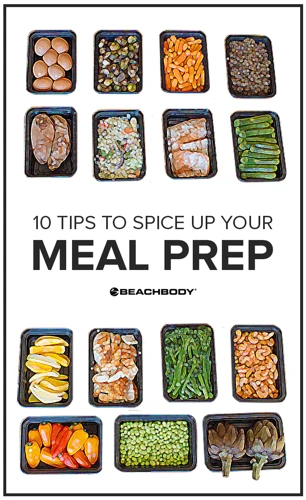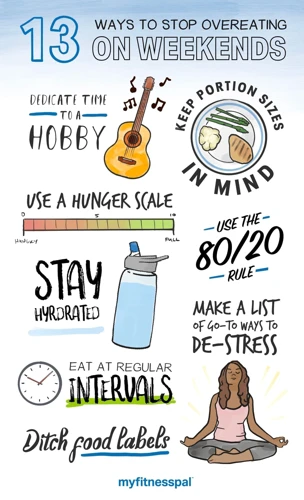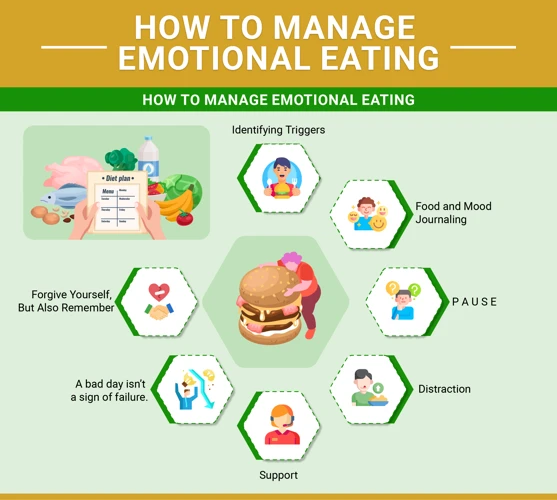Do you ever find yourself reaching for a snack when you’re feeling bored or restless? It’s a common habit that many of us develop, but it can be detrimental to our weight loss goals. If you’re tired of mindlessly snacking and want to break the cycle, you’re in the right place. In this article, we’ll explore 10 tips to help you overcome boredom eating and stay on track with your weight loss journey. By understanding why you eat when bored, planning your meals and snacks, sticking to a routine, managing stress and emotions, and getting enough sleep, you can help break the cycle of boredom eating and achieve your goals. Let’s dive in!
Understand Why You Eat When Bored

Have you ever found yourself mindlessly snacking on unhealthy foods while feeling bored? It’s a common struggle for those trying to lose weight. Understanding why you eat when bored is the first step toward breaking the habit. By exploring the underlying triggers and learning how to replace food with other activities, you can overcome boredom eating and stay on track with your weight loss goals. Let’s dive into some helpful tips and techniques to help you overcome boredom eating during weight loss.
Identify Triggers
Identifying triggers plays an important role in overcoming boredom eating during weight loss. By recognizing the triggers that cause boredom eating, you can take steps to avoid or manage them. Here are some tips:
| Tip 1: | Keep a food diary to track when and why you eat. Write down how you felt before and after eating, what you ate, and how much you ate. |
| Tip 2: | Pay attention to your emotions. Do you eat when you’re sad, stressed, or bored? If so, find healthier ways to cope with these emotions. |
| Tip 3: | Avoid eating in front of the TV or computer, as this can lead to mindless eating. |
| Tip 4: | Take note of your surroundings. Do you eat when you’re in a certain room, around certain people, or at a certain time of day? Try to change your environment or routine to avoid the trigger. |
| Tip 5: | Identify your cravings. Are you craving sweet or salty foods? Find healthier alternatives to these foods. |
Identifying triggers is the first step in overcoming boredom eating during weight loss. It allows you to recognize patterns in your eating habits and make changes to avoid or manage the triggers. By keeping a food diary and paying attention to your emotions, surroundings, and cravings, you can take control of your eating habits and achieve your weight loss goals.
Replace Food with Other Activities
When you find yourself reaching for food out of boredom, it’s important to have other activities to turn to instead. Here are some ideas to help you replace mindless snacking with more productive and fulfilling activities:
- Get moving: Take a walk outside, do some stretching, or take a fitness class.
- Do a hobby: Engage in a hobby that you enjoy, such as painting, knitting or photography.
- Read a book: Get lost in a good book or magazine to take your mind off of snacking.
- Connect with friends: Call or message a friend, go out for coffee or plan a fun activity together.
- Take up a new activity: Learn a new language, try a new sport or take a cooking class.
- Organize your space: Clean out a closet, re-arrange furniture or tackle an organizational project.
- Practice relaxation techniques: Try meditation or yoga to destress and calm your mind.
- Volunteer: Help out at a local charity or community event.
By finding activities that you enjoy and that keep you occupied, you can take your mind off of eating out of boredom and shift your focus to more satisfying and fulfilling activities.
Stay Hydrated
Staying hydrated is essential to overcome boredom eating during weight loss. Sometimes, your brain may mistake thirst for hunger, leading to unnecessary snacking. Hence, it is essential to drink enough water throughout the day. Here are some tips to ensure you stay hydrated:
| Tip | Description |
| 1 | Carry a water bottle with you wherever you go. This will make it easier for you to drink water throughout the day. |
| 2 | Add some flavor to your water with lemon, cucumber, or mint. You can also drink herbal tea or infused water as an alternative to plain water. |
| 3 | Drink water before and after meals. This will not only keep you hydrated but also prevent overeating. |
| 4 | Track your water intake using an app or a journal. This will help you stay accountable and ensure you drink enough water every day. |
| 5 | Avoid sugary drinks like soda, energy drinks, and juice as they can be high in calories and lead to weight gain. |
By staying hydrated, you can curb your boredom eating habits and stay on track with your weight loss goals. Drinking water is also essential for overall health and well-being, as it helps with digestion, regulates body temperature, and promotes healthy skin.
Plan Your Meals and Snacks

One of the most important aspects of successful weight loss is planning. Without a proper plan, it can be easy to fall back into old habits, particularly when it comes to snacking. By taking the time to plan out your meals and snacks, you can be sure that you have healthy options on hand when hunger strikes, and you’ll be less likely to turn to boredom eating. Let’s take a look at some key strategies for planning your meals and snacks.
Create a Weekly Meal Plan
One effective way to overcome boredom eating during weight loss is to create a weekly meal plan. By planning out your meals and snacks in advance, you can avoid last-minute decisions that may lead to unhealthy food choices. Here are some steps to help you create a successful weekly meal plan:
Step 1: Set aside time for planning. Make meal planning a weekly habit. Set aside a specific day and time each week (such as Sunday afternoon) to plan out your meals and snacks for the upcoming week.
Step 2: Consider your goals and preferences. When planning your meals, keep in mind your weight loss goals and dietary restrictions. For example, if you are trying to reduce your calorie intake, you may want to focus on incorporating more low-calorie, nutrient-dense foods into your meals. Additionally, consider your personal food preferences and try to include foods that you enjoy eating.
Step 3: Plan for all meals and snacks. Make sure to plan for all meals and snacks throughout the day, including breakfast, lunch, dinner, and any mid-morning or mid-afternoon snacks. This can help you avoid getting too hungry and making impulsive food choices.
Step 4: Use an online resource or template. There are many online resources and templates available to help you create a weekly meal plan. These resources often include recipe ideas and grocery lists that can save you time and effort.
Step 5: Create a grocery list. Once you have planned out your meals and snacks for the week, create a detailed grocery list of all the ingredients you will need. This can help you avoid impulse buys and keep you on track with your weight loss goals.
To visualize your weekly meal plan, you can use an html table to create a chart that outlines each day’s meals and snacks. Here is an example:
| Day | Breakfast | Mid-Morning Snack | Lunch | Mid-Afternoon Snack | Dinner | Evening Snack |
|---|---|---|---|---|---|---|
| Monday | 3 egg omelette with veggies | Green apple with almond butter | Turkey and veggie wrap | Plain Greek yogurt with berries | Grilled chicken with roasted vegetables | Carrot sticks with hummus |
| Tuesday | Strawberry protein smoothie | Hard-boiled egg | Spinach and feta omelette | Celery sticks with peanut butter | Baked salmon with quinoa and roasted brussels sprouts | Frozen grapes |
| Wednesday | Greek yogurt parfait with granola and mixed berries | String cheese | Grilled chicken Caesar salad | Apple slices with cinnamon | Vegetable stir-fry with brown rice | Dark chocolate square |
| Thursday | Whole grain toast with avocado and a fried egg | Cottage cheese with pineapple chunks | Tuna salad with whole wheat crackers | Baby carrots with hummus | Baked chicken with roasted sweet potatoes and green beans | Low-fat popcorn |
| Friday | Blueberry banana protein pancakes | Low-fat Greek yogurt with honey | Vegetable soup with whole grain bread | Orange slices | Grilled shrimp kabobs with mixed vegetables | Small protein bar |
| Saturday | Scrambled eggs with spinach and mushrooms | Fresh watermelon chunks | Chicken and vegetable stir-fry with brown rice | Raw almonds | Baked salmon with roasted asparagus | Low-fat vanilla ice cream with sliced banana |
| Sunday | Banana oatmeal with pecans and maple syrup | Cucumber and cherry tomato salad | Lean turkey burger with sweet potato wedges | Small green smoothie | Baked chicken Parmesan with whole grain pasta | Dark chocolate-covered strawberries |
Stock Up on Healthy Snacks
One effective strategy for overcoming boredom eating during weight loss is to stock up on healthy snacks. Choosing the right snacks can help satisfy cravings while also providing important nutrients that support weight loss. Here are some healthy snack options to consider:
| Snack Option | Nutritional Benefits |
|---|---|
| Fruits and Vegetables | Low in calories, high in fiber and other important nutrients like vitamins and minerals. Examples include sliced apples or carrots, cherry tomatoes, or celery sticks. |
| Nuts and Seeds | Rich in protein, healthy fats, and fiber. Examples include almonds, walnuts, sunflower seeds, or pumpkin seeds. Be mindful of portion sizes, as nuts and seeds are typically high in calories. |
| Low-Fat Dairy Products | Provide a good source of protein, calcium, and other nutrients. Examples include plain Greek yogurt, cottage cheese, or low-fat cheese sticks. |
| Whole Grain Snacks | Provide a good source of fiber and other important nutrients. Examples include air-popped popcorn, whole grain crackers, or rice cakes. |
| Healthy Drinks | Avoid sugary drinks and opt for healthier options like water, sparkling water, herbal tea, or coconut water. |
By having healthy snack options readily available, it becomes much easier to avoid temptation when boredom strikes. When planning your meals and snacks, aim to include a healthy snack option between meals and consider packing snacks to take with you on-the-go. Avoid keeping unhealthy snack options at home, as this can lead to mindless snacking on empty calories. By choosing healthy snacks, you can support your weight loss goals while also satiating feelings of boredom and hunger.
Avoid Keeping Unhealthy Options at Home
When it comes to avoiding boredom eating during weight loss, it’s crucial to create a healthy food environment at home. One effective way to do this is by avoiding keeping unhealthy options at home.
Here are some tips:
- Read Labels: Take the time to read labels when shopping for groceries. Avoid buying foods high in added sugars, unhealthy fats, and artificial ingredients.
- Fill up on Whole Foods: Invest in nutrient-dense whole foods that will keep you full and energized. Stock up on fresh fruits, vegetables, whole grains, lean protein, and healthy fats.
- Stay Away from Processed Foods: Processed foods are often packed with added sugars, unhealthy fats, and artificial ingredients. Instead, opt for whole foods that are minimally processed.
- Limit Snack Foods: While it’s okay to snack occasionally, try not to stock up on snack foods that are high in calories and low in nutrients. Instead, opt for healthy snack options such as nuts, fruits, and veggies.
- Avoid Eating Out of Packages: Avoid eating straight out of bags, boxes, and other packages. This can lead to mindless eating and overconsumption. Instead, portion out snacks into a bowl or plate.
By avoiding keeping unhealthy options at home, you are setting yourself up for success on your weight loss journey. Remember to focus on nutrient-dense whole foods that will energize your body and keep you satisfied.
Stick to a Routine and Stay Active

One of the key strategies for overcoming boredom eating during weight loss is to establish a structured routine and maintain an active lifestyle. By incorporating daily exercise and sticking to a regular schedule, you can help curb cravings and reduce the likelihood of mindlessly snacking. Let’s explore some helpful tips and techniques for staying focused, motivated, and accountable in your weight loss journey.
Set a Schedule
One effective way to overcome boredom eating during weight loss is to establish a schedule and stick to it. A schedule can help regulate your eating habits and prevent mindless snacking. Here are a few tips for setting a schedule:
- Plan your meals ahead of time: Take the time to plan out your meals for the day or week. This will help you stay on track and avoid impulsively reaching for unhealthy snacks.
- Stick to regular meal times: Try to eat at the same times every day. This will help regulate your appetite and prevent overeating.
- Schedule exercise: Incorporate exercise into your daily routine by scheduling it at a specific time. This will help develop a habit of physical activity and also reduce the likelihood of snacking out of boredom.
- Set reminders: If you struggle with remembering to eat or snack, set reminders on your phone or computer to prompt you to consume meals or snacks at specific times.
- Be flexible: While it’s important to stick to a schedule, it’s also important to allow for some flexibility. Don’t be too hard on yourself if you need to adjust your meal or exercise times occasionally. The goal is to establish a routine, but also listen to your body and adjust accordingly.
By setting a schedule and sticking to it, you can develop a healthy routine that supports your weight loss goals and helps overcome boredom eating habits.
Exercise Regularly
Regular exercise is an essential aspect of weight loss and overall health. Physical activity helps burn calories, increases energy levels, and reduces stress and anxiety. It is important to find an exercise routine that fits into your lifestyle and is enjoyable. Here are some tips to help you incorporate regular exercise into your routine:
| Tip | Description |
|---|---|
| Finding an activity you enjoy | Finding an activity you enjoy can make it easier to stick to an exercise routine. Consider trying different types of exercise such as dancing, swimming, or hiking to find what works for you. |
| Start Slowly | If you are new to exercise, start slowly and gradually build up your intensity and duration. This can help prevent injury and ensure that you do not feel overwhelmed. |
| Mix it up |
It is important to mix up your exercise routine to avoid boredom and prevent plateauing. Consider incorporating strength training, cardio, and flexibility training into your routine. For example:
|
| Stay Consistent | Staying consistent with your exercise routine can help you maintain your weight loss and improve your overall health. Aim to exercise at least 30 minutes a day, five times a week. |
| Buddy-Up | Finding a workout buddy can help hold you accountable and make exercise more fun. Consider joining a fitness group or class to meet new people and stay motivated. |
Remember, exercise is just one piece of the weight loss puzzle. A combination of healthy eating habits, exercise, and positive lifestyle changes can help you achieve your weight loss goals and improve your overall health.
Take Breaks from Sitting
Taking breaks from sitting is crucial for weight loss and overall physical health. Sitting for extended periods of time not only leads to weight gain and obesity, but also increased risk of heart disease, diabetes, and even certain cancers. Here are a few ways to take breaks from sitting and get your body moving:
| 1. Set reminders | Use a timer or an app to remind yourself to get up and move every hour or so. This can be as simple as taking a walk around the office or doing a few stretches. |
| 2. Stand while on the phone | Instead of sitting down during a phone call, stand up and pace. This can help increase your heart rate and burn a few extra calories. |
| 3. Walk during breaks | Instead of spending your break time sitting down, take a brisk walk outside or around the office building. This can help you get some fresh air and clear your mind. |
| 4. Use a standing desk | If possible, switch to a standing desk or a desk that can be adjusted to standing height. This can help you burn more calories throughout the day and improve your posture. |
| 5. Take the stairs | Avoid the elevator and take the stairs whenever possible. This can be a great way to increase your heart rate and burn some extra calories during the day. |
By incorporating these tips into your daily routine, you can help improve your overall health and support your weight loss goals. Remember to take breaks from sitting often and get your body moving throughout the day.
Manage Stress and Emotions

One of the biggest challenges during weight loss is managing stress and emotional eating. We’ve all experienced the temptation to reach for comfort food when we’re feeling overwhelmed or anxious. However, giving into this temptation often leads to feelings of guilt and setbacks in our weight loss journey. That’s why it’s essential to develop healthy coping mechanisms to deal with stress and emotions. In this section, we’ll explore some practical tips to help you manage stress and emotional eating during your weight loss journey.
Find Healthy Ways to Cope
When it comes to managing boredom eating during weight loss, finding healthy ways to cope with stress and emotions is crucial. Emotional eating is a common habit that can lead to overeating and weight gain. It’s important to learn healthy coping mechanisms to avoid turning to food for comfort. Below are some healthy ways to cope:
| Activity | Description |
| Exercise | Physical activity is an effective way to reduce stress, boost mood, and improve overall health. Try incorporating a daily workout or brisk walk into your routine. |
| Journaling | Writing down your thoughts and feelings can help you process and release negative emotions. Consider keeping a journal to track your progress and reflect on your feelings. |
| Practice relaxation techniques | Taking a few minutes to practice deep breathing, yoga, or meditation can help calm the mind and reduce stress levels. |
| Get creative | Get your mind off food and engage in a creative activity, such as painting, drawing, or playing an instrument. These activities can help reduce stress and promote relaxation. |
| Connect with others | Talking to friends or family members can provide a sense of support and help alleviate stress. Consider joining a support group or seeking professional help if needed. |
It’s important to remember that finding healthy ways to cope with stress and emotions takes time and practice. Don’t be discouraged if one method doesn’t work for you, try different activities until you find what works best for you. By incorporating healthy coping mechanisms into your daily routine, you can avoid turning to food for comfort and achieve your weight loss goals.
Practice Mindfulness
One effective way to overcome boredom eating during weight loss is to practice mindfulness. Mindfulness is the practice of being present in the moment, aware of your thoughts and feelings without judgment. It can help you become more aware of your eating habits and make better choices.
Here are some tips to practice mindfulness:
- Pay attention to your hunger level before eating. Ask yourself if you are really hungry or just bored.
- Eat slowly and savor each bite. Chew each bite thoroughly and take the time to enjoy the flavors and textures of your food.
- Avoid distractions while eating, such as television or your phone. Focus on your meal and the experience of eating.
- Notice your thoughts and feelings while eating. Are you enjoying your food? Are you feeling guilty or stressed?
- Practice gratitude for the food you are eating and the nourishment it provides for your body.
By practicing mindfulness, you can become more aware of your eating habits and make better choices. It can also help you to enjoy your meals more and reduce stress and boredom eating.
Seek Support
Seeking support is crucial when it comes to overcoming boredom eating during weight loss. It can be difficult to do it alone, so don’t be afraid to reach out for help. Here are some ways to seek support:
- Share your goals with a friend or family member: Sharing your weight loss goals with someone you trust can help hold you accountable and provide motivation.
- Join a weight loss group: Many communities have weight loss support groups, so consider joining one. This can allow you to meet others going through similar struggles and provide a sense of community and accountability.
- Work with a professional: Consider working with a registered dietitian or a licensed therapist who specializes in eating disorders. They can provide personalized guidance and support.
- Use online resources: There are many online communities and forums dedicated to weight loss, healthy eating, and exercise. Joining these can provide a sense of community and accountability.
Remember, seeking support does not mean you are weak. Everyone needs help and support at times, and it’s important to take care of your mental and emotional health as much as your physical health during weight loss.
Get Enough Sleep
One crucial factor that is often overlooked when it comes to weight loss is getting an adequate amount of sleep. Many people believe that diet and exercise are the only things that matter, but sleep plays a significant role in maintaining a healthy weight. Studies have shown that people who don’t get enough sleep are more likely to make poor food choices and overeat, leading to weight gain. In this section, we’ll explore the importance of getting enough sleep and provide tips on how to improve your sleep habits to help you achieve your weight loss goals.
Maintain a Regular Sleep Schedule
Maintaining a regular sleep schedule is crucial to overcoming boredom eating during weight loss. Studies have shown that lack of sleep or irregular sleeping patterns can lead to overeating and weight gain.
To maintain a regular sleep schedule, it’s important to establish a consistent bedtime and wake-up time and stick to it every day, even on weekends. This helps to regulate the body’s internal clock, which in turn can improve the quality of sleep.
It’s also important to avoid caffeine and alcohol before bedtime. These substances can interfere with sleep and make it harder to fall asleep or stay asleep.
Creating a relaxing bedtime routine can also help signal to the body that it’s time to wind down and prepare for sleep. This can include activities such as taking a warm bath, reading a book, or practicing relaxation techniques such as deep breathing.
Additionally, it’s important to create a sleep-conducive environment. This includes keeping the bedroom dark, quiet, and cool, investing in comfortable bedding and a supportive mattress, and avoiding electronics before bedtime.
By maintaining a regular sleep schedule, you can improve the quality of your sleep and reduce the likelihood of boredom eating during weight loss.
| Tips for Maintaining a Regular Sleep Schedule |
|---|
| Establish a consistent bedtime and wake-up time |
| Avoid caffeine and alcohol before bedtime |
| Create a relaxing bedtime routine |
| Keep the bedroom dark, quiet, and cool |
| Avoid electronics before bedtime |
Create a Relaxing Bedtime Routine
Having a relaxing bedtime routine can greatly improve your overall sleep quality and help you manage stress and emotions, which can in turn reduce the likelihood of boredom eating during weight loss. Here are some tips for creating a bedtime routine that promotes relaxation:
- Avoid screens before bedtime: The blue light emitted by electronic devices can interfere with the production of melatonin, a hormone that regulates sleep. Avoid watching TV, using your phone, or working on your computer for at least one hour before bed.
- Take a warm bath or shower: A warm bath or shower can help relax your muscles and prepare your body for sleep.
- Engage in relaxation activities: Do activities that calm your mind and promote relaxation, such as reading a book, practicing gentle yoga, or listening to calming music.
- Avoid caffeine and alcohol: Consuming caffeine or alcohol close to bedtime can disrupt your sleep and make it harder to fall asleep or stay asleep.
- Use aromatherapy: Essential oils like lavender and chamomile can be added to a diffuser or sprayed on your pillow to promote relaxation and improve sleep quality.
- Establish a consistent sleep schedule: Try to go to bed and wake up at the same time every day, even on weekends. This helps regulate your body’s internal clock and improve sleep quality.
By incorporating these tips into your bedtime routine, you may find it easier to fall asleep and stay asleep, which can in turn help you avoid boredom eating during weight loss. Remember, getting enough quality sleep is crucial for overall health and wellness.
Avoid Electronics Before Bed
According to research, using electronics before bed can disrupt sleep patterns and contribute to feelings of restlessness and anxiety. The blue light emitted by electronic devices, such as phones, tablets, and laptops, can suppress the production of melatonin, the hormone responsible for regulating sleep.
To avoid these negative effects, it’s important to establish a relaxing bedtime routine that doesn’t involve electronics. This can involve a variety of activities that promote relaxation and help prepare the mind and body for sleep. For example, you could take a warm bath, read a book, practice gentle yoga or meditation, or listen to soothing music.
Here are some additional tips for avoiding electronics before bed:
| Avoid Screens: | Avoid looking at screens, such as phones or computers, for at least an hour before bed. |
| Dim the Lights: | Dim the lights in your bedroom or use a low-wattage bulb to help signal to your brain that it’s time to sleep. |
| Avoid Stimulating Activities: | Avoid engaging in activities that can stimulate the brain or increase stress levels, such as watching exciting TV shows or having intense conversations. |
By avoiding electronics before bed and establishing a relaxing bedtime routine, you can improve your sleep quality and overall well-being.
Conclusion
In conclusion, overcoming boredom eating during weight loss is a challenging but achievable task. It requires a combination of self-awareness, planning, and adopting healthy habits. Identifying triggers, replacing food with other activities, staying hydrated, and planning your meals and snacks are all important steps to take. Setting a schedule, exercising regularly, and managing stress and emotions are also critical for success.
Getting enough sleep is another crucial piece of the puzzle. By maintaining a regular sleep schedule, creating a relaxing bedtime routine, and avoiding electronics before bed, you can reduce stress and improve sleep quality.
Ultimately, success in overcoming boredom eating comes down to making a commitment to yourself and taking small, consistent steps toward your goals. With patience, perseverance, and support from loved ones, you can overcome boredom eating and achieve your weight loss goals. Remember that every step forward is a step in the right direction, and celebrate your progress along the way.
Frequently Asked Questions
Can boredom eating really sabotage my weight loss efforts?
Yes, boredom eating can lead to consuming extra calories that your body does not need, which can result in weight gain or prevent weight loss.
How can I identify my triggers for boredom eating?
Take note of when and where you tend to snack out of boredom. Pay attention to your emotions and how you feel before reaching for food.
What are some healthy alternatives to snacking when bored?
Try drinking water, going for a walk, reading a book, doing a puzzle, or calling a friend instead of reaching for food.
How can staying hydrated help with boredom eating?
Drinking water can help you feel full and satisfied, reducing the urge to snack out of boredom.
How does meal planning help with boredom eating?
Having a plan for your meals and snacks can help you avoid reaching for unhealthy options out of convenience or boredom.
What are some healthy snacks to have on hand during weight loss?
Some healthy snack options include vegetables with hummus, fruit, Greek yogurt, nuts, and rice cakes.
Why is it important to avoid keeping unhealthy options at home?
If unhealthy options are readily available, it can be harder to resist the urge to snack out of boredom or convenience.
How does exercise help with boredom eating?
Exercise can increase feelings of happiness and reduce stress, which can in turn reduce the urge to snack out of boredom or emotions.
What are some healthy ways to cope with stress and emotions instead of eating?
Try meditating, practicing deep breathing, going for a walk, or engaging in a fun activity instead of eating when stressed or emotional.
Why is getting enough sleep important for weight loss?
Lack of sleep can increase cravings and appetite, making it harder to resist the urge to snack out of boredom or convenience.







